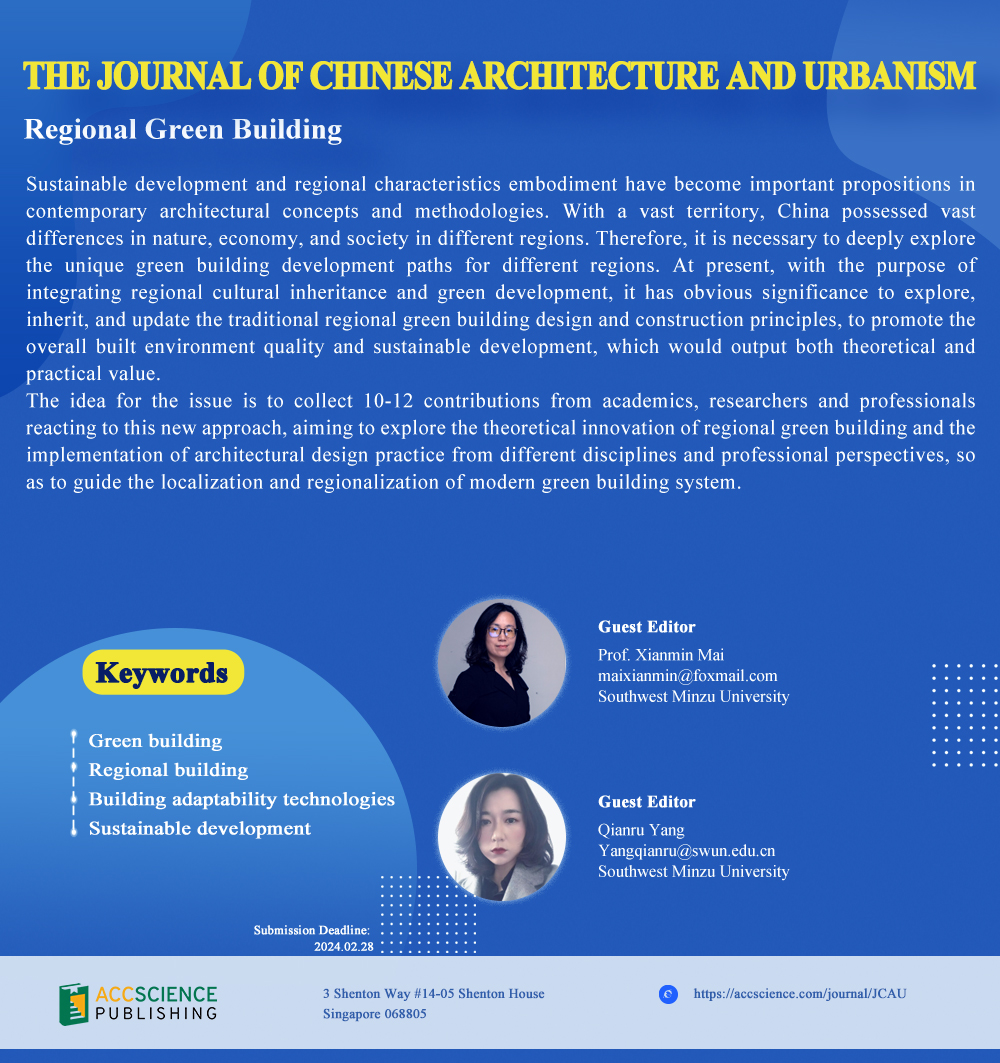
Sustainable development and regional characteristics embodiment have become important propositions in contemporary architectural concepts and methodologies. With a vast territory, China possessed vast differences in nature, economy, and society in different regions. Therefore, it is necessary to deeply explore the unique green building development paths for different regions. At present, with the purpose of integrating regional cultural inheritance and green development, it has obvious significance to explore, inherit, and update the traditional regional green building design and construction principles, to promote the overall bult environment quality and sustainable development, which would output both theoretical and practical value.
The idea for the issue is to collect 10-12 contributions from academics, researchers and professionals reacting to this new approach, aiming to explore the theoretical innovation of regional green building and the implementation of architectural design practice from different disciplines and professional perspectives, so as to guide the localization and regionalization of modern green building system.
Temporal and spatial characteristics of carbon storage and its response to land-use change in Chengdu, China
Analysis of the indoor wind environment in buildings on the Qinghai-Tibet plateau of China: A case study of the Dege Scripture Printing House



